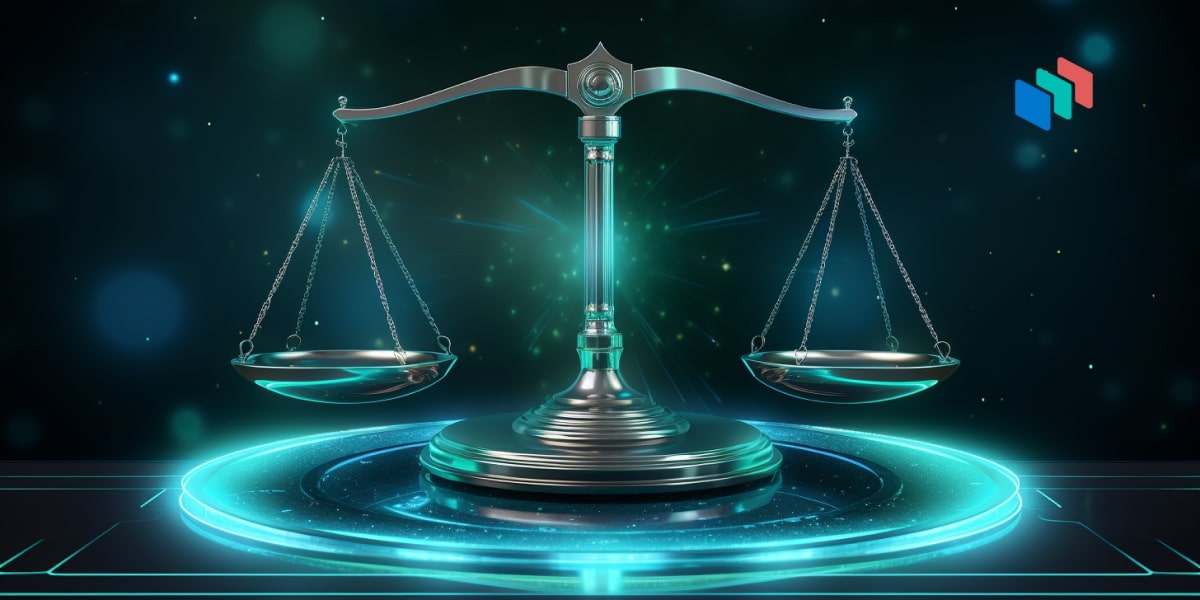Uniswap, the second-largest decentralized exchange (DEX), could be adding Know Your Customer (KYC) verification for its customers — throwing its most passionate user base into a debate.
As of October 2023, Uniswap sees $1.2 million in combined 24-hour trading volume across Ethereum (ETH) and Arbitrum (ARB).
Since its inception in 2018, the DEX has played an invaluable role in the growth of the decentralized finance (DeFi) ecosystem by pioneering the automated market maker (AMM) model — an improvement from the traditional order book-based model adopted by the majority of exchanges.
But new community-contributed code suggests KYC is coming to the protocol.
Why Is KYC a Big Deal On Uniswap and Other DEXs?
As a DEX platform, the implication is that Uniswap should have no centralized authority overseeing its operations — instead, the exchange functions courtesy of peer-to-peer (P2P) mechanisms using auditable smart contracts.
In other words, everyone is at liberty to participate in trading, lending, and borrowing without going through any third-party authority, such as banks or centralized cryptocurrency exchanges.
Therefore, implementing KYC guidelines does not sit well with most users, who suspect a potential gateway to government regulatory involvement.
KYC is an important process conducted mainly by financial institutions and recently centralized crypto exchanges to verify the identity of their customers or clients, and it forms part of anti-money laundering (AML) and counter-terrorist financing (CTF) guidelines.
The idea behind KYC is to ensure that clients do not engage in illegal transactions or fraudulent activities resulting in the misuse of financial accounts.
The growth of DEXs in the crypto industry has been fuelled by several factors, including the desire by investors to have control over their digital holdings, self-custody, as well as less regulatory scrutiny, which has, over the years, begun to infringe on a sector supposed to be grounded on the pillars of decentralization.
Back to Uniswap, which, in its latest community-contributed code, revealed that one of the most treasured DEX platforms is preparing for KYC checks under its new “Hooks” feature, which will introduce KYC and address whitelisting in Uniswap’s v4 update.
Although still a proposal, the community-contributed code (which are requests third-party developers to suggest modifications or changes) hasn’t landed well with all quarters of the community.
Renowned DeFi investor Adam Cochran referred to the code proposal as a “slippery slope. Just like the analogy of the frog in slow boiling water.”
DeFi participants are concerned that Uniswap could be gradually following in the doomed footsteps of THORSwap, a DeFI platform that closed for maintenance only to collapse in the process.
It's a slippery slope. Just like the analogy of the frog that is in slow boiling water.
If you create the tooling for permissioned systems, you give grounds for regulators to push to use them even in contexts where they aren't necessary.
That re-enters trust into the system, as… https://t.co/IH31hvH1E6 pic.twitter.com/DyQwJT49Yi
— Adam Cochran (adamscochran.eth) (@adamscochran) October 15, 2023
The proposal for KYC, submitted by Jongwon Park, a blockchain developer, states that “checks will be performed on users before they are allowed to trade on the pool.”
Cochran said that building a tool for permissioned systems means that you are preparing the “grounds for regulators to push to use them even in contexts where they aren’t necessary.”
The community is also worried about how Uniswap could comply with the mounting regulatory pressure. Could the platform be “compelled to censor assets on the front end?”
Are Permissioned Tools On Blockchains Inevitable?
DeFi enthusiasts seem to be looking beyond just KYC but other types of Pandora boxes that the Hooks code feature could open for the ecosystem, especially with Uniswap not having an impeccable history of pushing back against regulatory agencies.
“Having that flexible tooling is fine, but we also need an ironclad system at scale that does not have it, cannot have it, and is not susceptible to coercion or duress,” Cochran added.
It is worth mentioning that the Hooks feature is initially presented as optional, but it could lay the groundwork for a future that many members of the community will not want.
However, developer Park fired back against critics saying that permissioned tools on the blockchain are inevitable, adding that “we already use half-permissioned blockchains; look at upgradable proxies like USDC and aggregators.”
Looking into the future, it might not be possible to avoid “permissioned tools on blockchains — it’s inevitable like tech itself,” the developer stated in his post on X (formerly Twitter.)
1. We already use half-permissioned blockchains; look at upgradeable proxies like USDC and aggregators.
2. Immutable contracts like Uniswap are permissionless (on protocol-level).
One way or the other some people or entities are going to create permissioned tools on blockchains… https://t.co/Z2QCQ4SuCc
— Jongwon 👨🍳 (@jwpark02) October 16, 2023
Uniswap has not clarified which pools might fall under the Hooks feature, with some blockchain protocol contributors like Seraphim Czecker saying that the feature will likely underperform, making it difficult for Uniswap to scale across most of the pools.
“I think it [KYC Check] won’t be used much, to be honest,” Czecker, who contributes to Lido, the largest liquid staking token provider, said in a statement to Decrypt. “Most trading firms and bots that drive activity are like traditional finance prop firms. They like to stay hidden and don’t want to KYC anyway.”
DEXs like Uniswap, dYdX, and even Aave are not new to controls, having implemented specific screening guidelines for addresses and wallets linked to illegal activities.
Uniswap continues to screen and block addresses that have been sanctioned by the United States Department of the Treasury relating to targeted countries, regimes, known International criminals, and terrorists.
Uniswap, in collaboration with TRM Labs, a blockchain security provider, enhanced the screening process, aiming to block funds linked to proceeds of illegal activities coming from sanctioned Tornado Cash protocol.
Looking Forward
The Hooks feature is just a proposal and has not yet been implemented. On top of this, it is expected to be implemented as an optional feature for certain pools, implying the community could be jumping the gun too soon.
At the same time, the future of DeFi is consistently threatened by all sorts of hacks, including bridging hacks and protocol hacks. Crypto hacks hit $1.4 billion in three quarters of 2023, with $428.7 million occurring in Q3, representing 59.9 of all the hacks.
Taking action to curb illegal activities on DEXs and other DeFi protocols could be the only way to save the DeFi space. Therefore, before users prepare to reject certain key proposals, it might be prudent to think about the sheer amount of losses that occur due to hacks in the sector.
The Bottom Line
Uniswap is one of the trendsetters in the decentralized exchange space and often finds itself at the center of discussions, accused at times of appearing to side with regulators. The implementation of KYC is another contentious bone for the community.
While KYC goes against the fundamentals engraved in decentralized, permissionless blockchain systems, there’s an argument that it could unlock more potential in the ecosystem or indeed safeguard its future.










